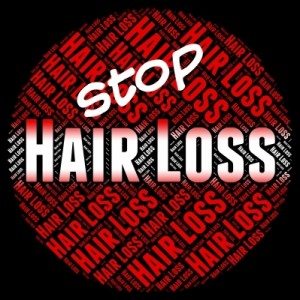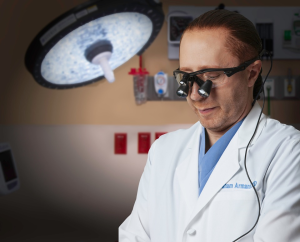According to the American Academy of Dermatology (AAD) 1 in 4 women experience thinning hair. While 40% of women experience thinning hair at time of menopause due to lower estrogen, it’s common for women to start losing their hair in their 20s and 30s.
On the average we lose 50 to 100 hairs a day. If you notice your hair is thinning more or falling out in larger quantities you may be experiencing “alopecia,” which is the term for hair loss. There are many types of hair loss and causes. Sometimes it’s reversible; sometimes it’s not. However, it is manageable, and there are hair restoration options for those who seek it.
Some of the most common reasons for hair loss according to the AAD:
Genetics is the most common cause. Approximately 80 million men and women in the U.S. have hereditary hair thinning or hair loss.
An underlying medical condition such as anemia, an autoimmune disorder or a thyroid disease can cause hair loss. So can a major illness. If you notice your hair is falling out you should speak to your medical practitioner. Usually a dermatologist treats hair loss.
Some cancer treatments, like chemotherapy, cause temporary hair loss. I lost all my head and body hair while undergoing chemotherapy for breast cancer. It is temporary, and your hair starts to grow back six-eight weeks after finishing treatment, sometimes fuller and sometimes not.
Hormones and stress. Many women experience hair loss after giving birth and during menopause due to falling estrogen. With younger women, this is temporary. With older it may be a permanent part of the aging process. Emotional trauma and anxiety can also trigger hair loss (or have you pulling out your hair).
Some medications. I mentioned chemotherapy above. Others include: birth control pills, anabolic steroids, often taken by athletes to improve performance, blood thinners and certain medications that treat arthritis, high blood pressure, depression, heart disease and gout. Too much vitamin A in supplements or medicine can cause hair loss.
Poor diet and nutrition affect your hair. So can rapid weight loss. It’s not just women with eating disorders (anorexia, bulimia) but also women who are not eating a balanced diet with enough protein and iron. Good sources of protein are meat, dish, chicken, eggs and, for vegetarians: beans, nuts and seeds. Sources of iron include spinach, lentils, soybeans and fortified cereals (vegetarians) and liver and shellfish. Eat those oysters!
Some hair care products – and habits- can cause hair loss: bleaches, hair relaxants, gels, hair sprays, blow dryers, flat irons. It’s important to take a patch test with hair colors and chemicals and try to not overdo it with too many treatments, especially in a short amount of time.

Inspiring Women around the World. Follow Melanie on Twitter@mightymelanie and Facebook/FearlessFabulousMelanie. Website and blog: www.melanieyoung.com
Are you experiencing thinning hair or hair loss? Hear from renowned hair restoration physician, Dr. Abraham Armani, Armani Medical Group in Dallas, Texas, on Fearless Fabulous You! Monday, February 8th, 4pmEST. Live on W4WN.com. Podcast permanently to iHeart.com and the free iHeart App.











